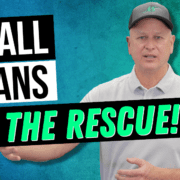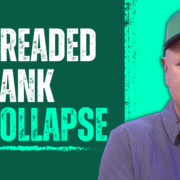What is Gap Funding?
Categories: Blog Posts
In the real estate investment world… What is gap funding?
You should never count on a bank or hard money lender to give you a loan that will cover 100% of your real estate investment property.
What you should be able to someday count on, though, is funding up to 100%.
So, what is this type of funding?
Definition: What Is Gap Lending?
Gap funding is the money you bring in from another source to fill any gap left between the lender and the project costs.
If a lender offers you 70% of the LTV on a property, this type funding is how you fill in the remaining 30%. Usually, you secure gap funding, although unsecured funding is possible.
A “secured” loan means that the debt is backed by a piece of collateral. In a typical gap funding scenario, the loan is secured by the property being purchased.
For the most part, you won’t be able to find a gap lender at an institution like you can a bank lender. Instead, gap lenders are family members, friends, or someone you know.
OPM vs Gap Funding
You can use a couple funding terms interchangeably:
- gap funding
- gap lending
- OPM (other people’s money)
- real people’s money
All of these terms get at the same concept. It’s money, not from you and not from an institutional lender, that covers whatever costs of an investment property that your lender won’t fund.
OPM can cover up to 100% of a deal, but for now, we’ll be talking about it in a strictly 100% funding sense. These are loans that fill in the holes of a project that a mortgage or hard money loan wouldn’t cover.
Check out our Youtube channel for more great information.












